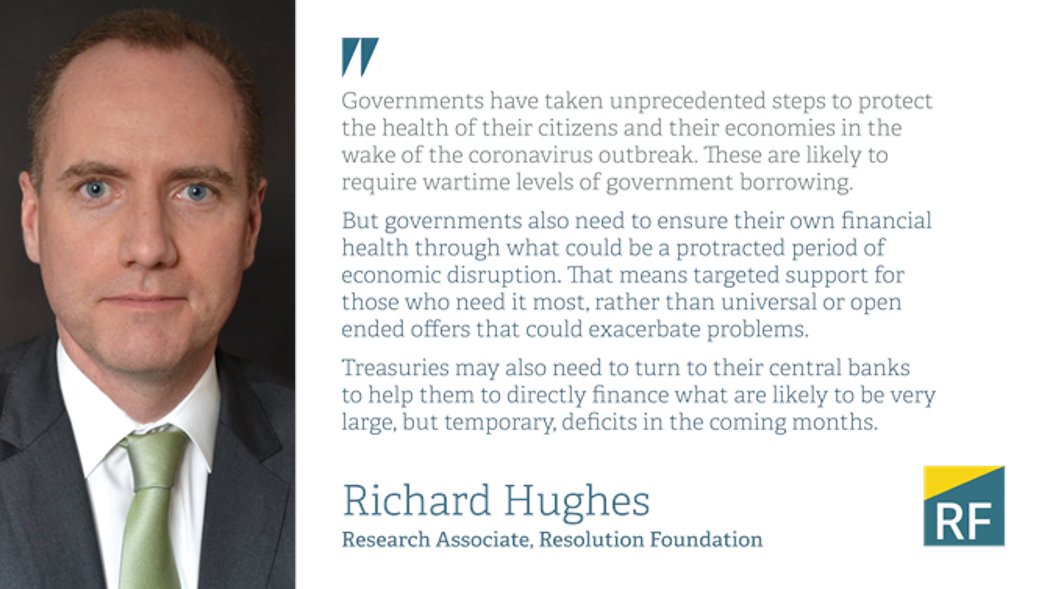The @bankofengland & @hmtreasury have announced an extension of the government& #39;s Ways & Means Account (the government& #39;s overdraft at the central bank) which has recently only been used on manage very short-term (day-to-day) cashflow needs (1/6) https://www.bankofengland.co.uk/news/2020/april/hmt-and-boe-announce-temporary-extension-to-ways-and-means-facility">https://www.bankofengland.co.uk/news/2020...
The HMT-BoE statement that "Any drawings will be repaid as soon as possible before the end of the year" suggests the government is planning to use this account to deal with larger and longer mismatches between receipts and payments in the coming months (2/6)
My recent paper for @resfoundation, explains why governments might need to turn to their central banks to directly finance their deficits during the coronavirus outbreak (3/6): https://www.resolutionfoundation.org/publications/safeguarding-governments-financial-health-during-coronavirus/">https://www.resolutionfoundation.org/publicati...
As I say in the paper, as long as the liquidity created by the central bank to finance the deficit is temporary, and withdrawn once the outbreak is over, the consequences for long-run inflation expectations should be limited. (4/6)
If you don& #39;t want to read the whole paper, @faisalislam has a nice write-up of the issues here (5/6): https://www.bbc.co.uk/news/business-52044374">https://www.bbc.co.uk/news/busi...
And you can read about how monetary policy needs to change in response to coronavirus in a new paper from @resfoundation colleagues @JamesSmithRF & @t0nyyates here (6/6) https://www.resolutionfoundation.org/publications/helicopters-on-standby/">https://www.resolutionfoundation.org/publicati...

 Read on Twitter
Read on Twitter


